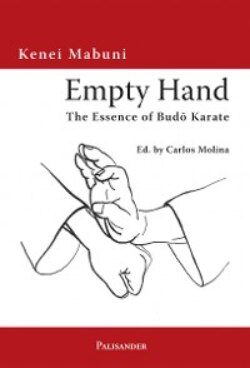Читать книгу Empty Hand - Kenei Mabuni - Страница 17
The State of Total Inner Calmness
ОглавлениеKarate practice develops body, spirit and fighting abilities. Since these three aspects of education are closely connected in the kata, kata training allows progress in all of them. This kind of learning is a real pleasure and can be a never-ending one.
In the Edo period (17th to 19th century) the samurai of the Nabeshima fief on Kyūshū Island (now Saga prefecture) were educated on the basis of the famous warrior code Hagakure12. The first rule a samurai had to follow was about his attitude towards aging. This rule demanded that learning and practicing should never end. No matter which level of abilities a samurai may have reached, how high in the hierarchy he might be, there is no reason for conceit, no reason to stop learning and improving oneself. 13
Those who learn only in order to win over others, to be better and stronger than others, are people who in fact learn for others. This is not the right way. A real master follows his way by continuously trying day by day, all his life, to improve himself. If one does not practice karate with joy so that nothing can stop oneself whatever people might say, this cannot be called true karate. Only if one enjoys practicing karate for oneself, not for others, if one cannot stop even if one would like to, one will experience karate as an endless path and reach a state of total concentration and inner silence.
About such a state of deep concentration called zanmai,14 my father once wrote the following words: “I enjoy my mind getting empty while rowing to the island of bu«.15
There is a Japanese term called gunshū meaning “learning by absorbing the smell”. It is based on the idea that the odor of an object is transmitted to the person steadily handling it. If one works with wood one will gradually acquire a wooden smell. What one does and thinks day by day finally becomes part of oneself, shapes the character and gives a certain “smell”. When my father was a policeman on Okinawa, visiting the karate masters at hidden places, teaching karate at the fishery school or attending karate performances, he always took me along and let me sit on his lap. That is maybe how I acquired his “smell”.
I always remember my father stripped to the waist practicing with his comrades in the light of a naked bulb, encouraging each other and forgetting the world around them. After he had moved to Ōsaka, he never knew what the day would bring. Nevertheless he went on with his life devoted to the study of karate, spending time with his comrades with whom he often shared his food and shelter. He also took care of the tatami mats that were always worn fast by the practice of the karateka. When one of his students came home from the battlefields of the Pacific War unharmed, he was as happy as he was when I returned. All this is the “smell” of my father my body has absorbed and I shall never lose. I also shall go the way of my father, the way of karate, which has no end. I shall practice karate as long as my body can move, step-by-step, stage-by-stage. I cannot predict how far I will come. But I know that I shall move on as long as I can. Progressing and improving oneself, that is what really makes sense, provides pleasure and joy. This is special about budō karate, that kind of karate I would like to propagate and that is the subject of this book.
